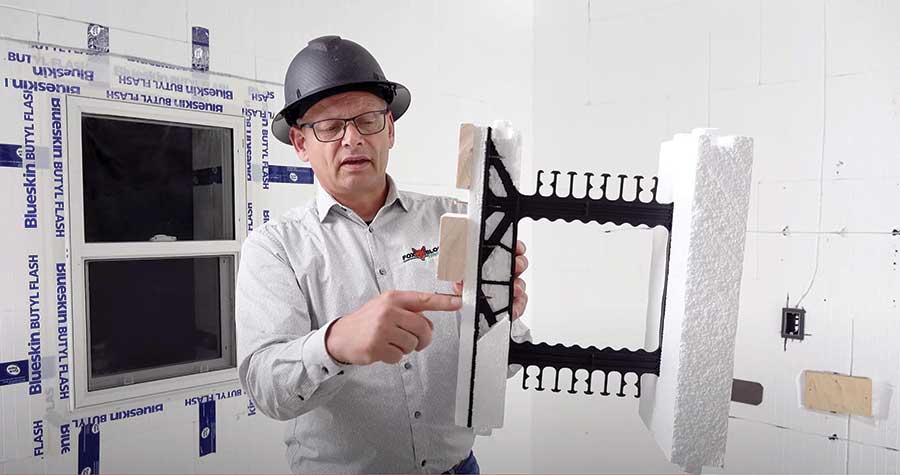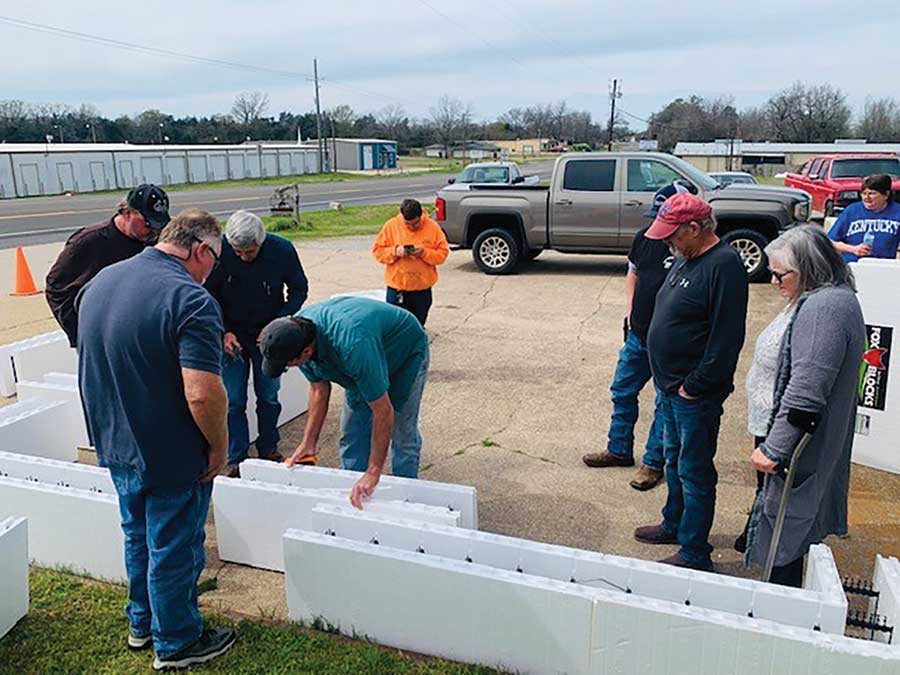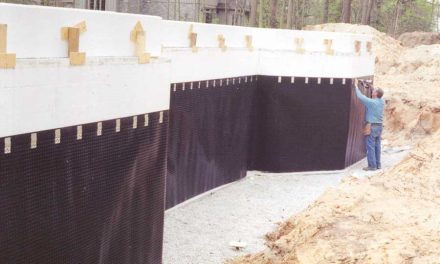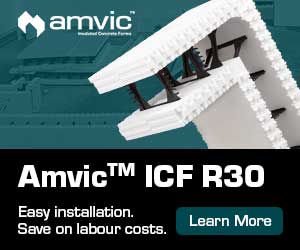In 2007, I wrote an article for this magazine on the importance of contractor training.
At that time, working with one of the pioneering companies in the ICF business and a leader in ICF standards development, training was a significant component in advancing product awareness and establishing a contractor base across the country. In those ‘good ole days,’ the ICF marketplace, more than 10 years old, had over 80 manufacturers, and it was a bit of a Wild West show on the configuration of ICF products and in the understanding of how to install and build walls correctly.
The pivotal leaders in ICF training are Glen Klassen and the late, great Richie Scott. Richie developed in-depth course material that required classroom training. Initially, the content involved a one or two-day course, including hands-on training and testing. Even with high registration fees, this training saw class sizes from 20 to 80+ contractors, architects, engineers, building officials, dealers, etc.
Over the last 25 years, the ICF industry and the product themselves transformed significantly and is now concentrated into a few major manufacturers, with robust products, ICF accessories, and a solid network of dealers and support.
Training and education have also changed from the original full-day classroom sessions, now due to the pandemic, to more online training. This is a great transition, but one of the main issues is that ICF installation requires more than a 1-hour video or a single webinar. The assembly of the blocks themselves is relatively easy–as everyone states, it is just like putting together toy building blocks.
Still, ICFs are a structural system. Placing concrete requires a solid knowledge base guided by a good understanding of the product and applications for a successful on-site experience. ICFs also provide the inherent advantages related to building science, resiliency, and energy savings, providing direct business assets that each contractor or designer can apply to enhance their business model.
Understanding all these aspects requires a more in-depth education and commitment. Most ICF manufacturers have online and installation videos specific to their products and application requirements. Installers and their crew need to understand, like with traditional construction, a sequence to any build, and the whole crew needs to be aware of each step, follow the checklists, and apply all the safety aspects to the build. To that end, there is now a large assortment of technical and educational documentation and videos available, free online, to educate oneself on ICFs.
Architects have access to free online AIA accredited learning seminars to become educated on the products, design considerations, and the sustainability advantages of building with ICFs. In this current environment with spiking lumber costs, labor shortages, and having a goal of achieving energy efficiency, ICFs are a key alternative construction application over wood, steel, or masonry for any building envelope. Understanding and educating oneself on this product’s attributes, the building process, and the life-cycle savings are paramount to good design and construction, now and for the future.
The competitive nature of the construction market, be it residential or commercial, requires each contractor, developer, architect, et al., some type of an advantage to be successful. Finding that advantage means adjusting how you do business, how you build, how you design, how you promote yourself. If you can design a better building, build faster, build a resilient and energy-efficient structure. Why would you not investigate what works as a proven alternative with insulated concrete forms? The tools are there to learn; the support is there for all building types across North America.
In the ‘good ole days,’ there was little or no training by manufacturers. Installers were going by the seat of their pants and, in some cases, creating their own problems. Consequently, because of this lack of product knowledge and installation instructions, installers were stressing the ICF products’ abilities, at that time, and creating some building issues. Following that era, the old saying was, “I heard in 1968 there were a lot of problems, so I don’t think I will try it.” This is a major misnomer.
The products have progressed substantially since then. ICFs now have rigorous production, and quality standards, more testing, code compliance criteria and have established an excellent construction record with proven success for any building type, big or small, residential, or commercial.
Enhancing the products is detailed application instructions and product education on building science and other key advantages of the products’ characteristics. The online availability for ICF education and training is now easily accessible in a self-paced, in-depth mode. Learn all you can to expand your skills toward achieving rewarding success in the design and construction industry.
The design and construction industries are changing to meet the times and the future. Traditional construction is not making the grade. Designers, developers, and builders need to consider alternative products and building systems by expanding their product knowledge to meet these challenges and be successful. ICFs are a proven alternative, and educational tools are available.
In a quote from a book by an ICF champion, Pieter VanderWerf, “There are many things to be said for going through a formal ICF training course. The good courses compress all the experience of hundreds of ICF contractors . . . “
With respect to ICFs, the “wheel” has been re-invented. From the beginning with Ritchie Scott, years of experience have gone into the training that is available today. Take advantage.

Tom Patton
Tom Patton is an ICF Consultant, with over 20 years experience in all aspects of the ICF industry. Currently, Patton is the
Corporate Brand Ambassador for Fox Blocks, a leading provider of ICFs. He is also co-developer, with Glen Klassen, of the Fox Blocks Integrated Learning Center. Contact him at (905) 914-2880.

New Training Center
Fox Blocks has launched a new online training site, the Integrated Learning Center (ILC), created by veteran ICF professionals and tradesmen, each with 20+ years of experience. The online site provides a self-paced course for Primary Installers that is 6 hours long and covers all aspects of building with ICFs. Four main sections cover all aspects:
- Pre-Build
- Building the Wall
- Concrete
- Post-concrete and Finishes
Each main section has a series of video modules, 20 in all, and is accompanied by a detailed reference workbook that provides additional links to documentation and technical material. The site also provides a vast video library of product applications, highlighting techniques and installation details. The ILC site will expand contractor training education and certification at different levels, from Primary to Master Installer, plus a continued expansion of the video library. Visit www.foxblocks.com/ilc to access the Integrated Learning Center.














